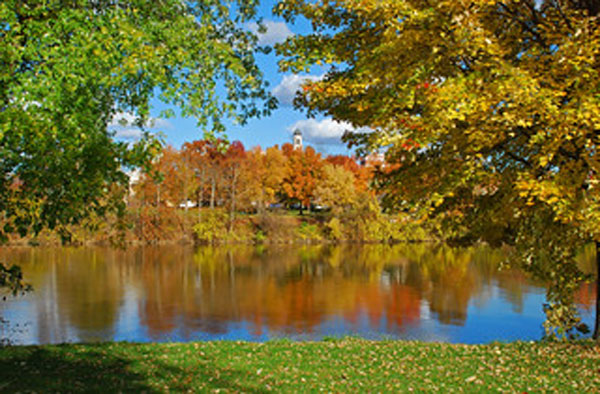November is a month for giving thanks. We give thanks for our families, our health, our jobs, our homes, our friends and even our pets but there are so many other things we should be thankful for, such as our natural resources. We assume those resources will always be there and be safe. In some countries they are a luxury.
One of the biggest things we take for granted is our water. We turn on the sink or the shower and expect water to come pouring out, clean water at that. Did you know 663 million people on our planet do not have access to safe, clean drinking water? We not only have safe drinking water in the form of prepackaged bottled water, but we have clean drinking water coming from faucets in our homes. On average, a person in a developing country will walk 6-8 hours a day to get clean water and will travel around 3 miles one way. In most cases, those collecting water are women and children.
Not only do we take for granted the water we have but we abuse it. How many times have you driven by a storm drain and saw it polluted with debris? How many times a day do you think about the amount of plastic you throw away? Does your mind automatically go straight to saving sea turtles when some one talks about the pollution in our oceans? Do you often think the main source of pollution comes from factories and farms? The truth of it is, pollution comes from everyone every day.
Have you ever thought about where the water goes or where it comes from? The water that goes down our storm drains ends up back in the waterways without going through a treatment plant and all the pollution is carried from city to city, collecting everything in its path. We can follow a single droplet of water all the way from Canada to the Gulf of Mexico. That is why we encourage people to make small changes in their homes to protect the water. Try conserving water by turning off the faucet when brushing your teeth, always have a full load of laundry before washing, keep a nozzle on your hose and practice only rain down the storm drain.
We live in a world where convenience takes precedence over everything. It is easier to grab that bottle of water instead of filling up your own. It simpler to use that plastic straw than to carry your own or not use one at all. Those Ziploc baggies are easier to just throw away instead of using reusable ones. This post is not about pointing out all the things we do wrong, it is about doing better.
We are all so quick to grab that bottled water, but did you know bottled water is very rarely regulated? Your municipal drinking water facilities go through more frequent safety testing and monitoring than bottled water companies. Not only is your tap water safer for you to drink, but it is also cheaper. Think about the amount of money you spend on bottled water; it is thousands of times more expensive than your tap water. Unfortunately, even though so many bottles can be recycled, at least 75% of them end up in the garbage or waterways.
I know many think tap water is unsafe to drink or has an off taste, but there are options you can do in your home to improve the safety and taste. Try using a filtered pitcher or adding a filter to your faucet. Try adding flavored mixes to your water for a different taste. If you do find it necessary to buy bottled water, then remember to recycle those bottles properly. Overall, your tap water is better for you than the bottled water you purchase.
Next time you go to take a shower or water your lawn, take a minute to be grateful for the safe clean water you have, especially when compared to others around the world.
Our annual berry plant sale is going on now through April, 26th. | Order Online Today! • Our annual fish sale is going on now through April, 26th. Pickup day is May 7th. | Order Online Today! • We will be on Live At Noon on Monday, April 29, 2024 with NRCS.
